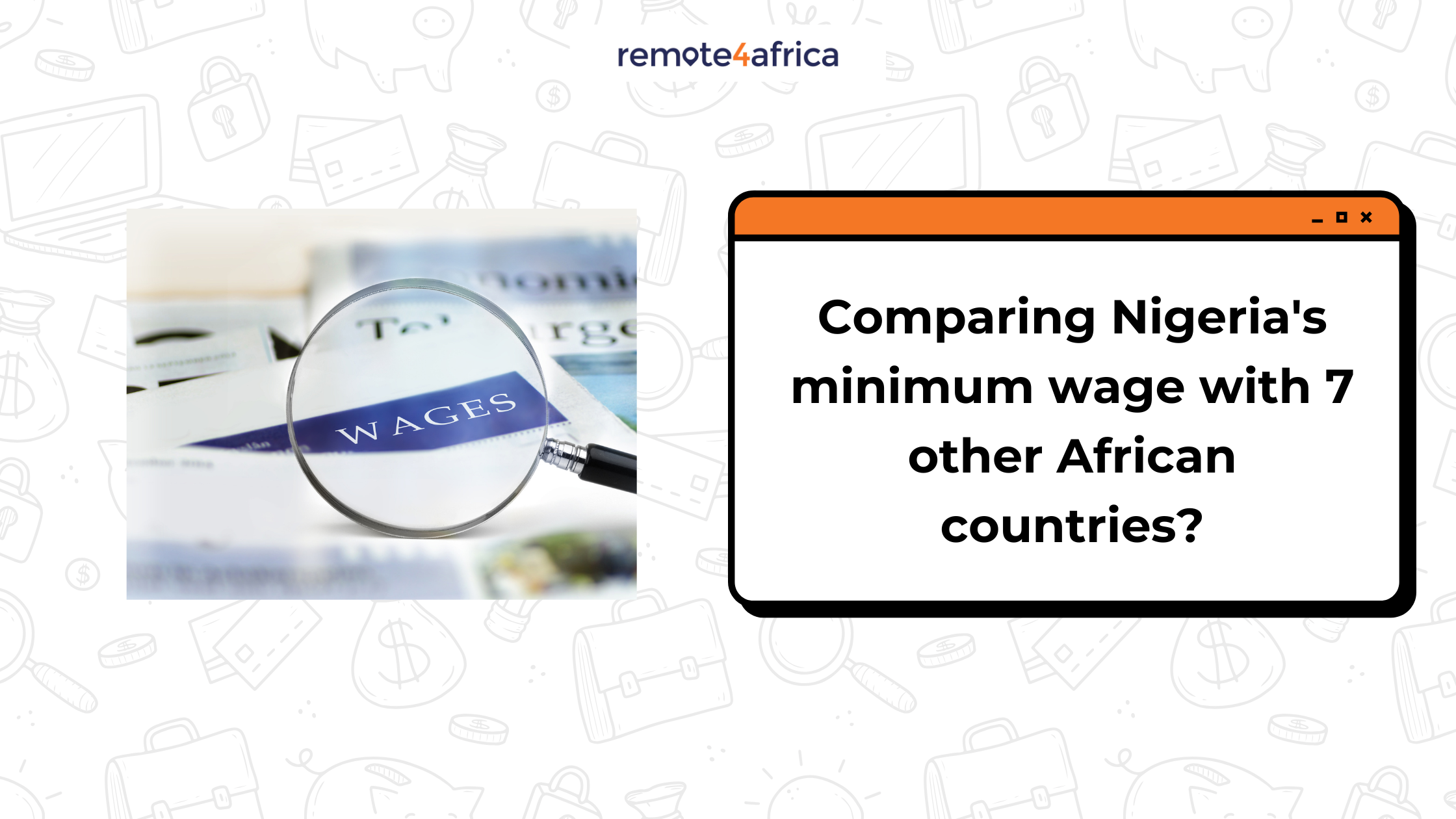Here’s How Nigeria’s Current Minimum Wage Compares to Several Other African Countries (USD Equivalent)
Nigeria, the fourth largest economy in Africa, has the lowest minimum wage among countries in the top ten. It has a government-mandated minimum wage, which has undergone several revisions since 1981.

The minimum wage in Nigeria has been steady at $18 since 18 April, 2019. In 2023, the Government of Nigeria announced an additional $21 wage award (wage subsidy) for six months, starting from 1 September 2023. The total amount payable to a worker would be $43.
Find remote jobs that pay good wages
Using an average N1,600 to a dollar exchange rate, a Nigerian worker goes home at the end of 30 working days with a meagre $ 42, an amount not enough to afford a half bag of rice in the present economy.
Nigeria's Current Minimum Wage
Nigeria's national minimum wage has been $11 for seven years until it was increased to $18 in 2018, an amount it remained for about six years. In July 2024, Nigeria approved an increase in the minimum wage for Nigerian workers from $18 to $43. However, the implementation across states has been gradual, with some still yet to adopt the new minimum wage.
The adjustment was driven by a combination of inflation, public sector demands, and widespread economic hardship. However, despite the increase, many workers argue that the wage is insufficient to meet basic needs.
To contextualise Nigeria’s minimum wage, it is essential to examine other African countries. This comparison highlights the disparities in wage policies and the economic conditions that influence them.
South Africa
South Africa has one of the highest minimum wages on the continent, set at about $248 per month. This substantial wage reflects the country's higher cost of living and robust labour market. The minimum wage was introduced in 2019 and aimed at addressing inequality and ensuring that workers can afford basic needs. While both South Africa and Nigeria provide significantly different minimum wages, both countries aim to protect workers. South Africa's minimum wage is approximately 476.73% higher than Nigeria’s.
Kenya
Kenya's minimum wage stands at approximately $117 per month. The country has experienced significant economic growth in recent years, driven by sectors such as agriculture, manufacturing, and services. Kenya’s minimum wage and Nigeria’s differ greatly, both illustrating the varying economic conditions and challenges each country faces. While its minimum wage ranks higher than Nigeria's, it still faces criticism for being inadequate against rising living costs.
Ghana
As of January 2024, Ghana's national daily minimum wage has been increased to $1, up from the previous $0.91. The adjustment represents a 22% increase, aimed at helping workers cope with inflation and improving standard of living. The government has faced pressure from labour unions and civil society to increase the minimum wage, particularly in light of rising inflation and economic challenges. Both Nigeria and Ghana face high inflation and struggle with economic challenges.
Uganda
Minimum wages in Uganda remain unchanged at $36 per month from 2017 to 2024, making it one of the lowest in the region. The country faces significant economic challenges, including high levels of unemployment and underemployment. Many workers, especially in the informal sector, earn below the minimum wage, exacerbating poverty levels.
Tanzania
In Tanzania, the minimum wage is approximately $14 per month. The country's economy is heavily reliant on agriculture, which employs a significant portion of the population. While Tanzania has seen some economic growth, the minimum wage remains low.
Morocco
As of 2024, Morocco’s minimum wage has been raised by 5% to help workers manage inflation. The new rates are at $316 per month for the non-agricultural sector and $236 per month for agricultural workers. Morocco has a more diversified economy, which may support high wages, while Nigeria faces economic challenges that affect wage growth and purchasing power.
Conclusion
The issue of minimum wage in Africa is complex and multifaceted, with Nigeria positioned at the lower end of the spectrum. As the country grapples with high inflation and a rising cost of living, the current minimum wage remains inadequate for many workers. Comparing Nigeria's situation with other African nations highlights the disparities in economic conditions and the urgent need for reform.
